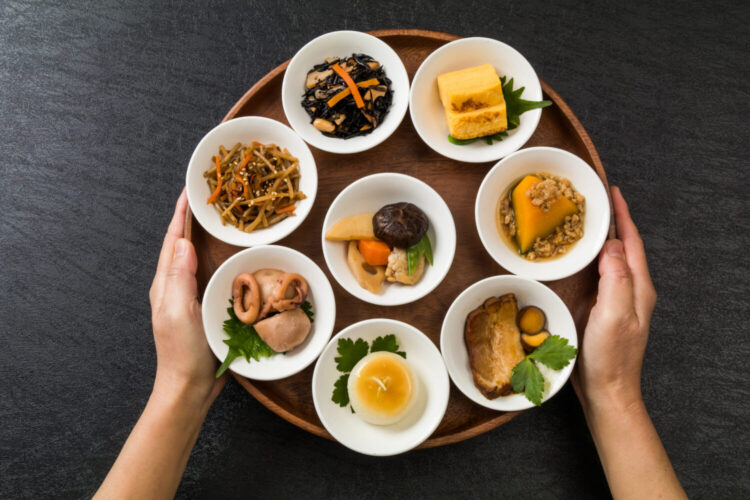
Are you finding it challenging to keep your blood sugar levels in check? Look no further! In this article, we’ll introduce you to five delicious foods that have been shown to help naturally reduce blood sugar.
Keeping blood sugar levels stable is vital for overall health, especially for those managing diabetes or prediabetes. The best part is that adding these foods to your diet doesn’t mean compromising on taste or enjoyment.
From the refreshing taste of blueberries to the unique qualities of Jerusalem artichokes, we’ll dive into the nutritional benefits of each of these blood-sugar-friendly foods. Rich in vitamins, minerals, and fiber, these ingredients not only aid in blood sugar regulation but also bring a delightful culinary experience.
Whether you’re aiming to prevent blood sugar spikes or manage diabetes more effectively, our list of tasty foods will support you in making informed choices for a healthier lifestyle. So, let’s jump in and explore these mouth-watering options that can naturally assist in lowering your blood sugar levels.
Say goodbye to bland meals and welcome flavorful choices that promote optimal health!
The Benefits of Keeping Blood Sugar Levels Stable

Keeping blood sugar levels stable is essential for everyone, especially for those managing diabetes or prediabetes. When blood sugar remains steady, the body can function more effectively, which promotes better energy and overall wellness. Blood sugar fluctuations may lead to various symptoms, including tiredness, irritability, and, over time, potential health complications. By prioritizing blood sugar stability, individuals can improve their quality of life and lower the risk of chronic health problems.
A key advantage of stable blood sugar is the decreased likelihood of developing serious health issues. Elevated blood sugar levels may lead to diabetes-related complications like cardiovascular disease, kidney damage, and neuropathy. On the other hand, low blood sugar can cause dizziness, confusion, and, in severe cases, loss of consciousness. Keeping blood sugar balanced helps minimize these risks, supporting better health and an active lifestyle.
Furthermore, steady blood sugar levels aid in weight management. When blood sugar spikes and dips, it often leads to cravings for sugary or high-carbohydrate foods, resulting in overeating and less healthy choices. By incorporating foods that naturally support blood sugar regulation, individuals can manage blood sugar more effectively while also working toward weight loss or maintenance goals. A nutrient-rich, balanced diet promotes healthier eating patterns and encourages a positive relationship with food.
Understanding the Glycemic Index and Its Impact on Blood Sugar Control

The glycemic index (GI) serves as a useful guide for grasping how various foods influence blood sugar levels. This index classifies carbohydrates on a scale from 0 to 100 based on how quickly they elevate blood sugar following consumption. Foods with a high GI can cause sharp increases in blood sugar, while those with a low GI gradually release glucose, fostering steady energy levels. For individuals managing diabetes or prediabetes, familiarity with the GI can help in making well-informed dietary choices.
Low-GI foods are generally rich in nutrients and often contain higher fiber content, which is vital for regulating blood sugar. Fiber slows the digestion process and the release of sugar into the bloodstream, reducing the likelihood of blood sugar spikes. Including a variety of low to moderate GI foods in your meals can aid in maintaining stable blood sugar levels. Whole grains, legumes, fruits, and non-starchy vegetables are examples of foods that can effectively support blood sugar management.
Additionally, the glycemic index is just one factor to consider in assessing a food’s impact on blood sugar. The overall makeup of a meal, particularly the balance of carbohydrates, proteins, and healthy fats, greatly affects blood sugar response. Pairing low-GI foods with healthy fats and proteins can further stabilize blood sugar, supporting improved health outcomes and a more enjoyable eating experience.
Foods That Naturally Lower Blood Sugar Levels
Adding certain foods to your diet can have a meaningful impact on blood sugar management. These foods are not only flavorful but also packed with nutrients that contribute to overall health and wellness. They aid in stabilizing blood sugar, lowering insulin resistance, and enhancing metabolic health. Here are some notable foods that naturally support blood sugar regulation.
When selecting foods for blood sugar control, prioritize whole, minimally processed options that are high in fiber, beneficial fats, and essential vitamins and minerals. Making thoughtful choices about what you consume allows you to effectively manage blood sugar levels while enjoying diverse tastes and textures. The following sections delve into each of these nutritious foods, outlining their specific benefits and how to include them in your diet for optimal health.
Each item on this list has been researched for its potential to assist in lowering blood sugar and boosting insulin sensitivity, making them excellent additions for anyone monitoring their blood sugar. From fruits to seeds, these options are versatile and can be easily incorporated into various meals, ensuring your diet stays both enjoyable and health-centered.
Blueberries: A Powerful Superfood for Blood Sugar Control
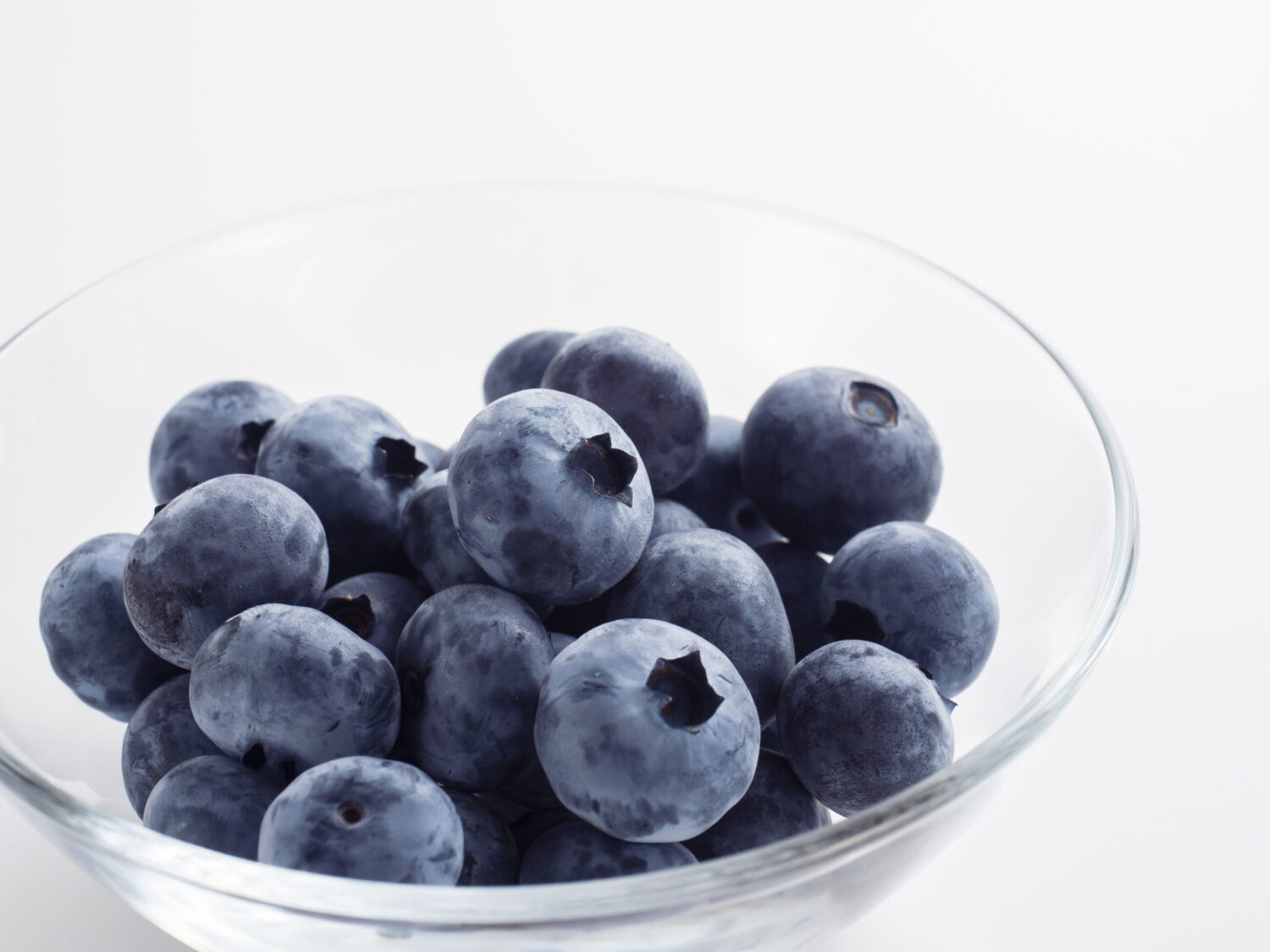
Blueberries are widely celebrated as a superfood, and for good reason. These vibrant, small berries are loaded with antioxidants, essential vitamins, and minerals while remaining low in calories. With a low glycemic index, blueberries do not lead to major spikes in blood sugar, offering a steady energy source that makes them an ideal choice for those managing blood sugar.
A standout feature of blueberries is their rich concentration of anthocyanins, the natural compounds that give them their deep blue hue. Studies have shown that anthocyanins can enhance insulin sensitivity, allowing the body to use glucose more effectively. This benefit is particularly helpful for those with insulin resistance, a common challenge for individuals with type 2 diabetes. Regularly including blueberries in one’s diet has been linked to reduced fasting blood sugar levels and better overall glycemic control.
Adding blueberries to your diet is both simple and enjoyable. They can be tossed into smoothies, mixed with yogurt, sprinkled over oatmeal, or even added to salads for a burst of flavor and nutrients. Whether fresh, frozen, or dried, blueberries are a versatile option that complements both sweet and savory dishes, making them a delightful and nutritious addition to meals.
Jerusalem Artichokes: A Sunchoke Rich in Inulin
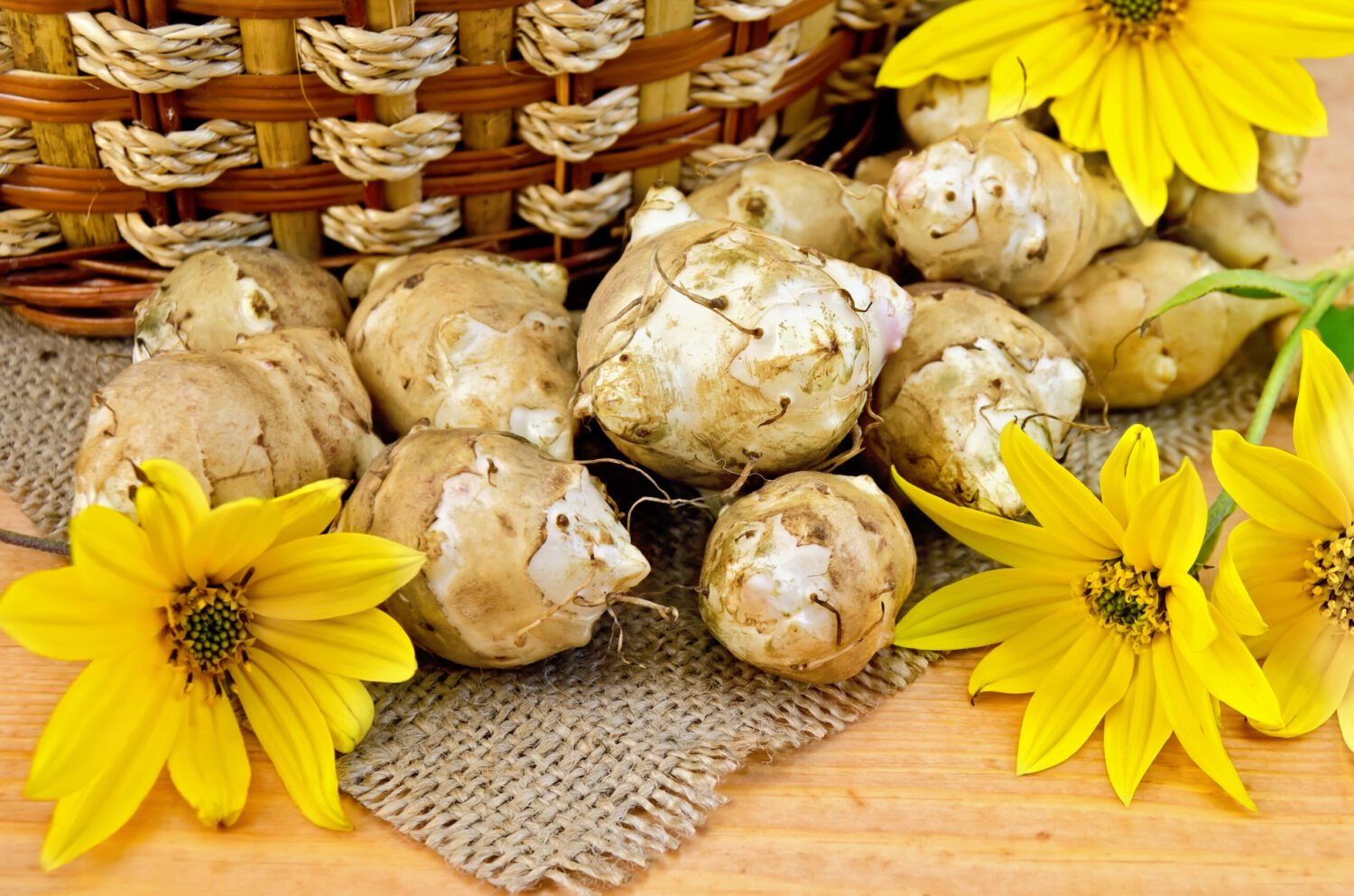
Jerusalem artichokes, commonly known as sunchokes, are a distinctive root vegetable that’s gaining attention for their health benefits, particularly in blood sugar management. They are abundant in inulin, a type of soluble fiber with prebiotic properties. Inulin supports blood sugar regulation by slowing the digestion and absorption of carbohydrates, leading to more stable blood sugar levels.
The high fiber content of Jerusalem artichokes also aids digestion and promotes a healthy gut microbiome, which can further boost metabolic health. Low in calories and packed with essential nutrients, they make an excellent addition to any meal, offering vital vitamins and minerals without causing blood sugar spikes.
Jerusalem artichokes can be enjoyed in a variety of ways, including roasted, steamed, or pureed. Their nutty taste and satisfying crunch make them a great addition to soups, salads, and grain dishes. By experimenting with this versatile vegetable, you can bring new flavors to your meals while enjoying the benefits of enhanced blood sugar control.
Chia Seeds: A Fiber-Rich Choice for Blood Sugar Stability
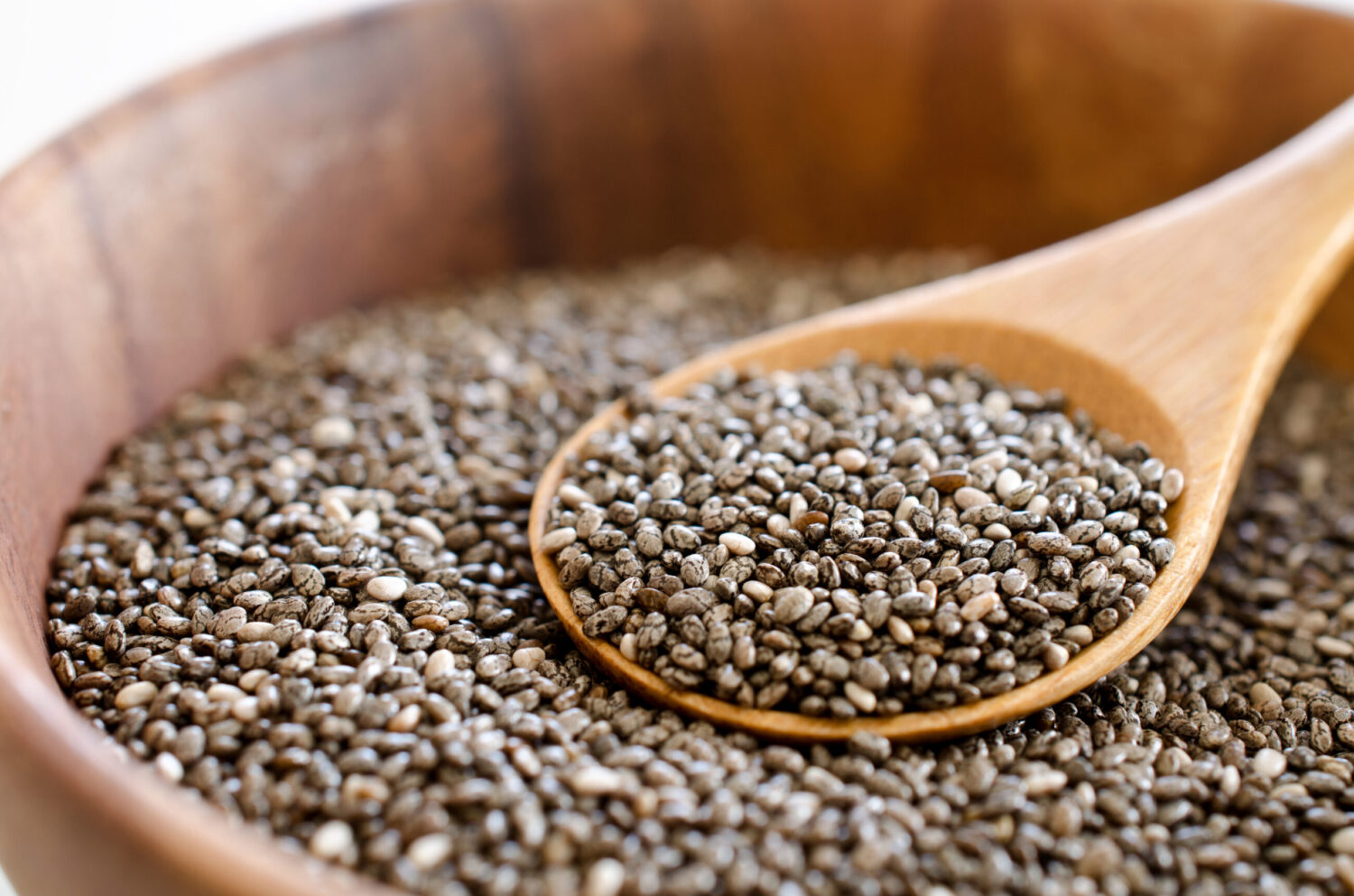
Chia seeds may be small, but they pack a powerful punch in terms of nutrition and blood sugar support. Filled with fiber, omega-3 fatty acids, and key nutrients, chia seeds have a low glycemic index and play a valuable role in maintaining steady blood sugar levels. The soluble fiber in chia seeds forms a gel-like texture when combined with liquids, slowing digestion and helping to prevent rapid increases in blood sugar.
Adding chia seeds to your meals is easy and versatile. They can be mixed into smoothies, oatmeal, or yogurt, or used to create chia pudding. When soaked in liquid, chia seeds expand, creating a filling, nutrient-dense snack that helps you stay full longer and reduces the temptation for unhealthy snacking.
Studies suggest that chia seeds can boost insulin sensitivity and support blood sugar regulation, especially for those managing type 2 diabetes. By incorporating chia seeds into your daily routine, you can enjoy their health benefits while savoring a range of satisfying meals and snacks.
Chomeisou: Nutrient-Rich Options for Blood Sugar Management

Chomeisou, also known as Japanese purslane, is a lesser-known yet nutrient-packed herb ideal for blood sugar management. This leafy green is rich in vitamins, minerals, and omega-3 fatty acids, making it a valuable addition for maintaining balanced blood sugar. Chomeisou also offers anti-inflammatory benefits, which can aid in improving insulin sensitivity.
The high fiber content in chomeisou helps slow glucose absorption, promoting stable blood sugar levels. This makes it an excellent choice for those focusing on weight and blood sugar control. Its distinctive, mildly tangy flavor brings a refreshing twist to salads, stir-fries, and smoothies.
Adding chomeisou to your diet is simple—toss it into your favorite dishes or enjoy it as a side salad. With its versatility and health benefits, chomeisou is a great option for anyone aiming to boost their nutrient intake while effectively managing blood sugar levels.
Nuts and Seeds: Healthy Fats for Blood Sugar Control
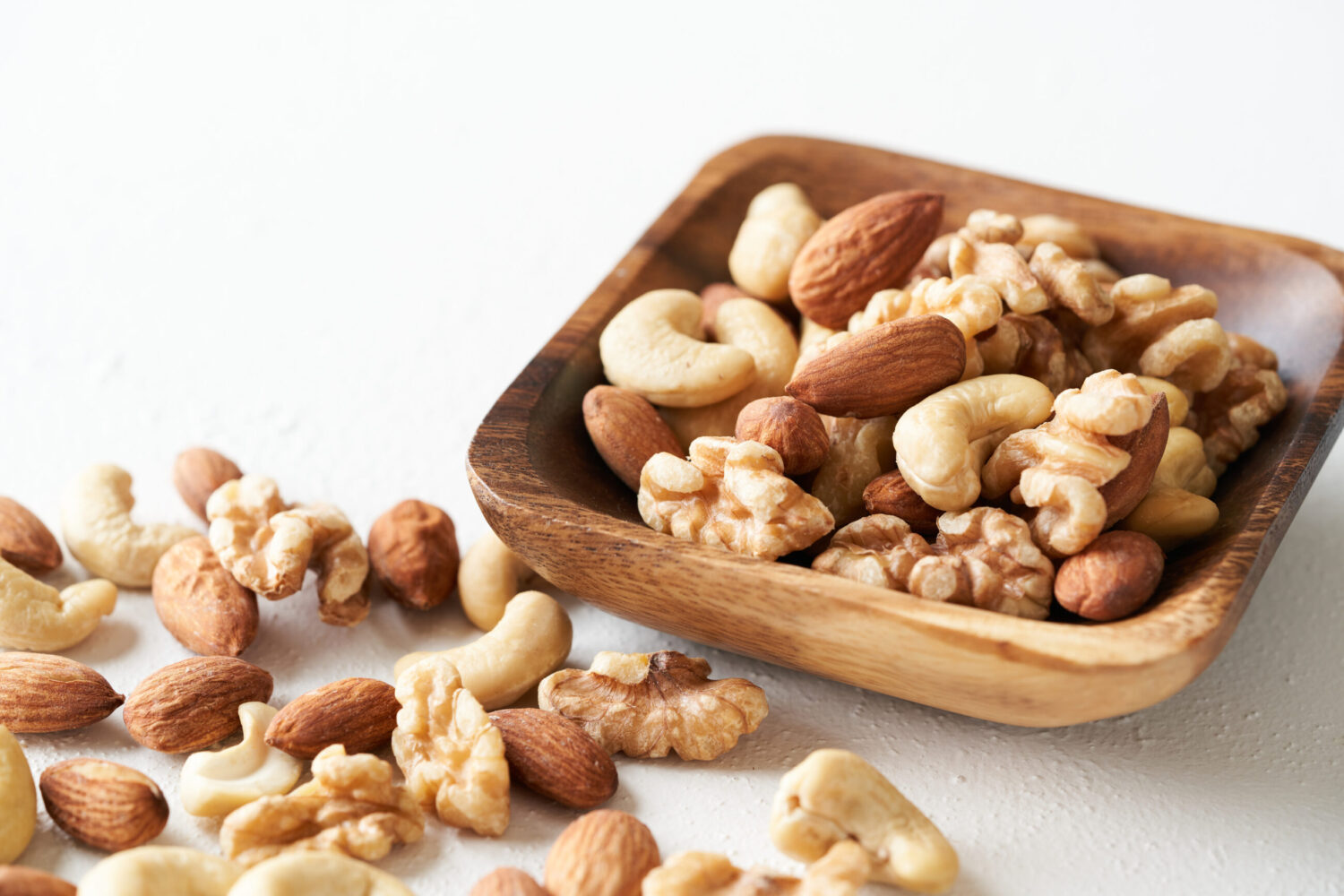
Nuts and seeds are a fantastic food group for supporting blood sugar regulation. Packed with healthy fats, protein, and fiber, they offer a satisfying, nutrient-dense choice for snacking or enhancing meals. Numerous studies suggest that regular nut consumption can boost insulin sensitivity and lower the likelihood of developing type 2 diabetes.
Almonds, walnuts, and chia seeds stand out for their blood sugar-supporting benefits. These foods are low in carbohydrates yet high in essential nutrients like magnesium and Vitamin E, which contribute to overall wellness. Their high fiber content aids in slowing digestion, promoting stable blood sugar levels and reducing hunger.
Adding nuts and seeds to your diet is both easy and enjoyable. They can be eaten on their own, sprinkled over salads, or blended into smoothies for an extra nutritional boost. By including a range of nuts and seeds in your meals, you can enjoy the benefits of healthy fats while effectively managing blood sugar levels.
Adding These Foods to Your Diet for Enhanced Blood Sugar Control
Incorporating these flavorful foods into your daily meals can provide meaningful support for blood sugar management. By emphasizing nutrient-rich options like blueberries, Jerusalem artichokes, chia seeds, chomeisou, and various nuts and seeds, you can enjoy tasty meals that align with your health goals. These foods not only aid in blood sugar regulation but also contribute to overall wellness, making them valuable additions to any diet.
To optimize the benefits, aim to create balanced meals that blend different food groups. For instance, combining chia seeds with yogurt or adding nuts to salads can elevate the nutritional value of your meals while helping to maintain steady blood sugar levels. Paying attention to portion sizes and overall meal composition is also key to achieving the best results.
In the end, making thoughtful dietary choices can lead to better blood sugar control and improved health outcomes. By savoring the flavors and advantages of these wholesome foods, you can cultivate a satisfying, health-centered dining experience that supports your path to effective blood sugar management.
You may also be interested in
Articles with the same tags
- no tag...

